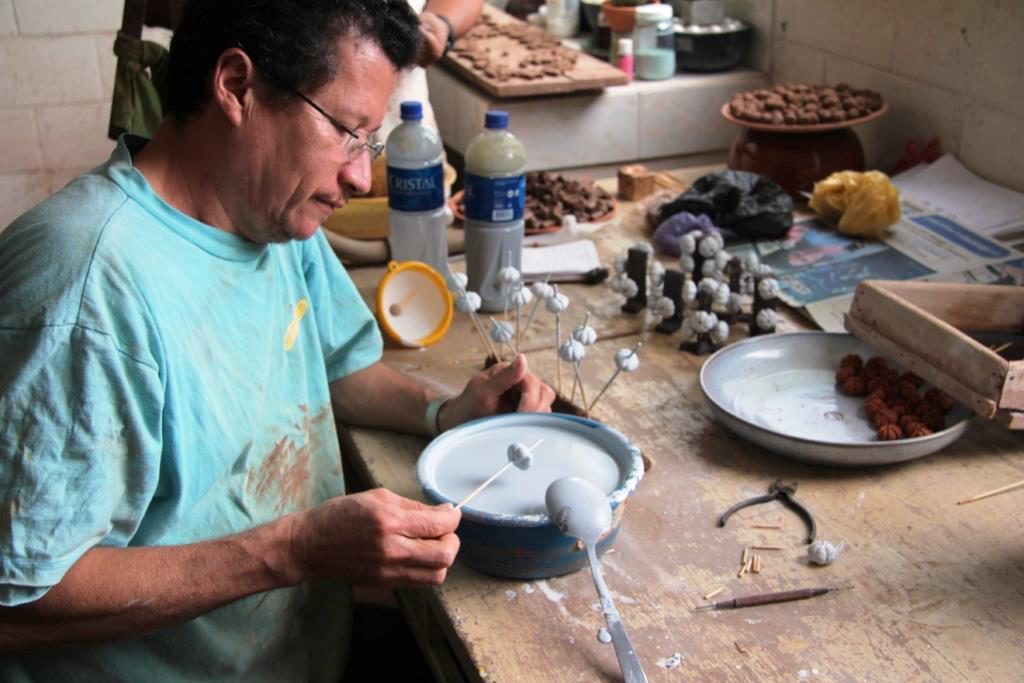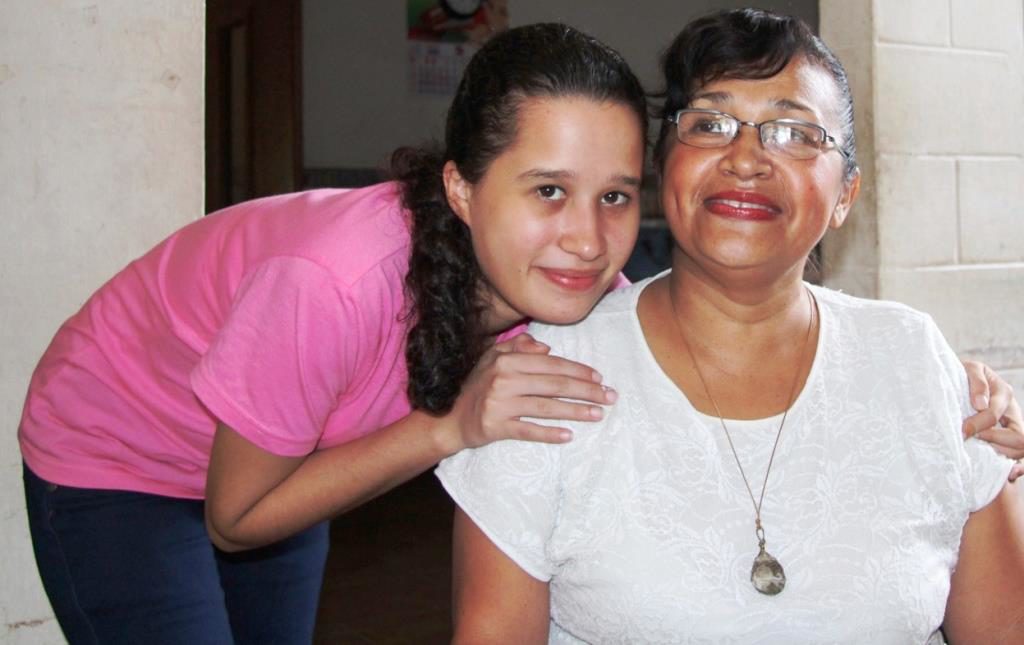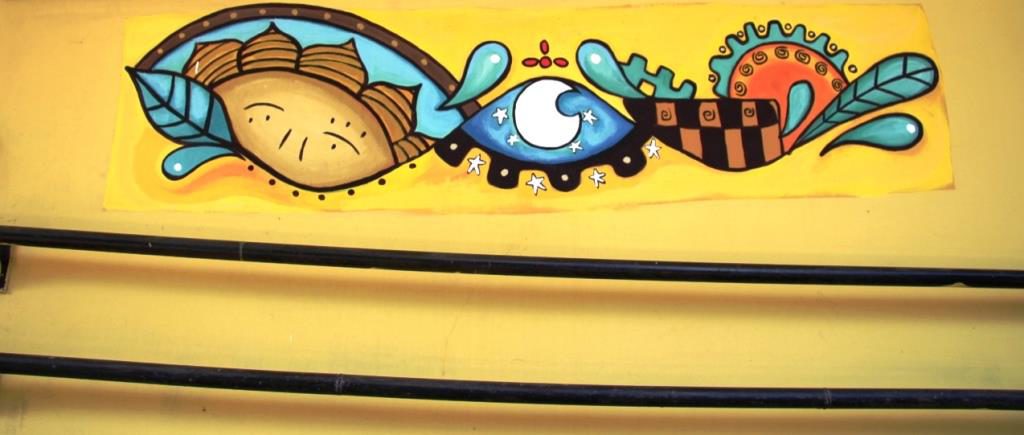“ If there is a problem and I think of a solution, it is not uncommon for me to get up in the middle of the night to handle it. “
Esta historia se escribe en Español = This story is also written in Spanish here.
Editor’s Note: To fully understand Fatima’s story it will be helpful to first read the story of Eileen Batres Giron as background.
https://www.embracingelsalvador.org/eileen-batres-giron
Eileen, a talented artist in her own right, confined to a wheelchair as a result of childhood polio, established Shicali Pottery as a place of employment for the handicapped. She also helped set up ACOGIPIRI, an organization dedicated to championing the rights of the handicapped in El Salvador. When Eileen passed away, many of us who came to appreciate and value her valiant efforts, feared that these two groups she established would dissolve.
Enter Fatima, whose bright dimpled smile immediately allays all our fears. She has been working with Shicali for twenty years and would not allow Eileen’s work to fade away. Building on the same Shicali goal Eileen set, Fatima brings her own style and an entire family to support her and her staff.

We’ll cut to the chase. Following in Eileen’s shadow had to be very difficult for you since she originated and developed this business and advocacy concept. Have you been accepted by the staff ?
It wasn’t as difficult as it could have been if I had been an outsider. I have been here at Shicali Pottery for 20 years. First I was a student volunteer before I began to work here. I learned all the various jobs. Later I became more involved and close to Eileen when she asked me to be secretary on the administrative board and then on the board of directors. (There are two boards, one is responsible to the primary board for things that might escape in terms of labor-related issues or financial issues.) Certain aspects need to be addressed when a cooperative is formalized requiring it to have a council, education committee, and production committee, for example.
Eileen founded this in 1981, and her experience was tremendous. She began grooming me to continue the vision knowing her health was diminishing. The staff was aware and accepting, making my coming into the leadership role an easy transition.
What do you see as the biggest differences between Eileen and you in terms of your management styles?

This is in no way meant to be a criticism, but Eileen was a serious person in how she handled business, whereas I tend to be more of a team person. Every week our staff comes together to lay out plans of what will need to happen for the upcoming week. The expectations are there, and everyone works to achieve the goals. For example, by the end of this week, we have an order of 12,000 ceramic beads to fill for one woman. We all know that and will work to get that order finished even if it means staying late every night to fill the order. We want to avoid losing a valuable customer.
Can you update us on the ongoing efforts of ACOGIPIR (Asociacion Cooperative del Grupo Independente Pro Rehabilitacion Integral)within the community?
We are addressing several areas. December third we celebrated the Day of Disabilities. On that date we presented a bill to several different levels of the government, including the National Assembly and the mayor’s office to address equality and opportunity. Our ombudsmen for human rights has been very helpful in drafting the legislation for us.
We are also working with women in self-esteem components through workshops. When someone becomes disabled, we accompany them emotionally on how their lives will change and also try to provide resources they may need such as wheelchairs or walkers when they are discharged from the hospital. Right now we have a list of 30-40 people who have needs. If they are children, we want to know the age, size, and height to best meet their needs. Joni & Friends has been assisting us.

Personally, what have been the challenges most difficult for you to face? Because I contracted polio when I was six (1964) and must use a wheelchair, accessibility is very limiting to me. It is frustrating to be unable to board a city bus and go to a movie or out for fun with friends. We are working to get some city buses with wheelchair lifts. Also the city sidewalks do not have adequate curb cuts for wheelchairs resulting in wheelchair-bound people using the heavily-trafficked streets to get around. It is so dangerous.
Another challenge I face is job discrimination. Like so many others in my situation, employers do not want to hire me because they will need to modify their infrastructure to accommodate my wheelchair, and that would not be cost effective for their company. This applies to any type of handicap whether it be curb cuts on city sidewalks for wheelchairs or interpreters for deaf. In the legislation we are introducing, the bill states that a company risks facing fines if a certain number of its employers are not handicapped.
Socially, convincing the public to respect handicapped parking spaces is a baby step we are working on. Attitudes sometimes are harder to change than legislation. If restaurants have suggestions boxes, I often write one for better seating arrangements for wheelchairs, for example. I take part in public rallies also.
What happens if the legislation does not pass?
We expect the National Assembly will send the bill back for modifications to return for discussion before a final vote is taken. We expect to make compromises, and our ombudsmen for human rights will be part of that process. Currently we have a handicapped legislator serving who is certainly rallying our cause.
Update us on your work here at Shicali. What is new since we were here a couple of years ago?
Our goal here at Shicali continues to be to provide employment for people with disabilities and for them to understand that they can do anything that anyone without disabilities can do. Our financial issues continue, and our staff of ten is now reduced to seven employees. Some found better jobs; others passed away or left the country. Each staff member knows how to perform every role within the pottery process and can fill in for one another when needed. It was not cost effective for us to continue with website sales due to high mailing costs, so we discontinued that feature.

One of the new aspects we are happy to share is the National University is cooperating through a teacher who donates extra raw materials to us when they have them. That professor also helps us learn new and complex designs to try.
In 2013 we received the donation of a large oven from a ceramics shop that closed. We are grateful for help like this from the community.
We go to artisan shows when we are invited. CRISPAZ delegations often bring their participants here which provides a source of revenue to us. We also began renting out our large upstairs room for workshops and training sessions.
Tell us about life away from work.
I have been married for 25 years. My husband, Hector, works here as a potter and painter. We have two daughters; Roxana is studying computer engineering, and Marcela is working in international relations. They help me here in the workshop on the floor when we have big orders to get out as well as in other roles. One of my daughters is here working today. Traveling with my family is a favorite activity.

I am currently studying for my Bachelor’s degree in English at the university. I enjoy reading books about women’s rights.
Also I am taking a sign language course so I can help interpret the mass for the deaf members at church. It is tiring work, but I enjoy it. Here at work we have short moments during lunch to discuss the Bible to help clarify some of the concepts that are difficult for some individuals to grasp. I pray for clarity of my decisions for my fellow workers.
Gardening is a favorite way to relax. White roses are my favorite flower, and my herb garden includes basil, cilantro, and garlic in pots.
How do those close to you describe you?
My family describes me as hard-working and energetic. If there is a problem and I think of a solution, it is not uncommon for me to get up in the middle of the night to handle it. I am not afraid to ask others for advice either.
Editor’s Note: One of the unexpected benefits to conducting these interviews is connecting our storytellers together that have common interests, passions, or needs. When Fatima shared her work with Joni & Friends, we immediately contacted another Salvadoran friend who is the country’s retreat coordinator for Joni & Friends. We hope they can work together on common causes in the future to enhance and improve life for the handicapped in El Salvador.

Shicali Wall Art
Notice
Due to anticipated changes in re-focusing our Salvadoran ministry during the near future, we will be offering one story per month, rather than our customary two, alternating between a personal story of witness and a travel story.
We hope you will continue to read our website while we clarify our goals.
Thank you for your support.


